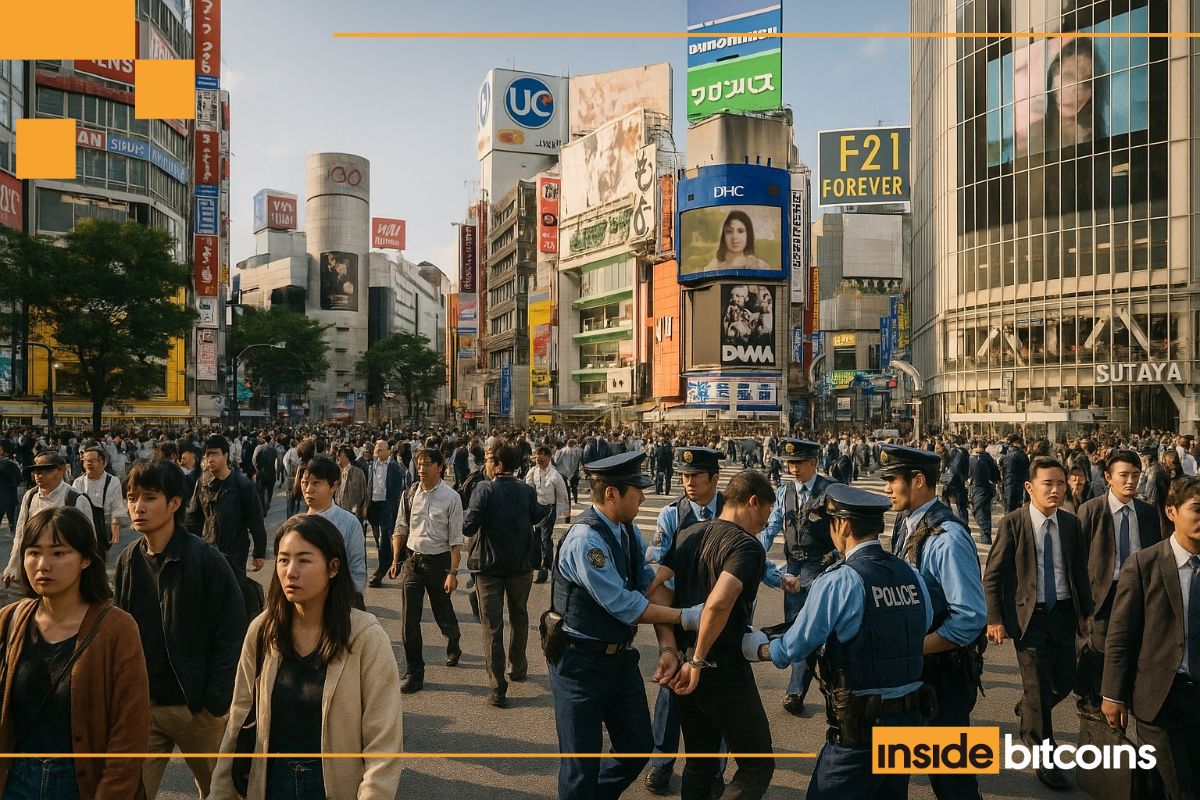Japan’s recent arrest of nine individuals connected to a massive $629 million gambling operation represents just the tip of the iceberg in the country’s complex relationship with gambling. This sprawling investigation, which uncovered a network processing 90 billion yen through online casinos for 3,600 customers in just one month, highlights how traditional Japanese attitudes toward gambling are colliding with modern digital realities and international gaming platforms.
Ancient Roots and Cultural Foundations
Japan’s gambling story stretches back over a millennium, with roots that would surprise many contemporary observers. The earliest recorded lottery system dates to 1624 in what was then called Settsu Province, encompassing parts of modern-day Hyogo and Osaka prefectures. At Ryuanji Temple, visitors would place wooden tablets called kifuda with their names into a box during New Year celebrations, and monks would draw winners who received protective amulets for good fortune.
This temple-based lottery system wasn’t just about luck – it served as a crucial fundraising mechanism for religious institutions throughout the Edo Period (1603-1867). Temples and shrines relied on these games of chance to finance repairs and maintain their facilities, creating an early precedent for gambling serving public purposes that echoes in today’s legal framework.
The practice thrived until 1842, when the ruling Shogunate Government banned these religious lotteries. This early prohibition set a pattern that would define Japanese gambling policy for centuries: strict official disapproval coupled with persistent popular demand and creative workarounds.
Horse racing also has ancient Japanese roots, with recorded history tracing back to 701 A.D. during Emperor Mommu’s reign. These early races evolved into Imperial Court-sponsored events called “Kurabe-Uma” or match races, establishing a cultural foundation for what would later become one of Japan’s few legal gambling activities.
The Complex Legal Framework of Modern Japan
Today’s Japanese gambling landscape operates under a fascinating paradox enshrined in Article 185 of the Japanese Penal Code, which generally prohibits gambling while carving out specific exceptions. This creates a system where certain forms of gambling are not just legal but actively promoted by government entities, while others remain strictly forbidden.
The legal gambling sector centers around four main categories of public sports betting: horse racing, bicycle racing, powerboat racing, and motorcycle racing. These “kōei kyōgi” employ parimutuel betting systems where 70-80% of total sales return to gamblers as prizes, with the remainder funding local governments and related organizations. The Japan Racing Association (JRA) handles national-level horse racing, while local governments operate their own racing circuits, creating a dual system that has functioned for over 90 years.
Lotteries, known as takarakuji, represent another major legal gambling category. These range from unique number lotteries to scratch cards, with tickets priced between 100-500 yen and top prizes often exceeding 100 million yen. The takarakuji law deliberately limits prize pools to less than 50% of sales, ensuring the majority of revenue flows to local governments and charitable causes.
Then there’s pachinko, Japan’s most culturally significant gambling-adjacent activity. This unique game emerged from 1920s experiments with pinball-inspired machines called “korinto-gashi”. Following World War II, pachinko exploded in popularity as an accessible entertainment form for Japan’s rapidly urbanizing population. The introduction of electric machines in the post-war era, followed by technological advances including flashing lights and sound effects in the 1960s and 1970s, transformed pachinko into a distinctly Japanese phenomenon.
Pachinko occupies a legal gray area that exemplifies Japanese regulatory creativity. While technically not classified as gambling, the 2018 Act on Countermeasures for Gambling Addiction explicitly includes pachinko as an activity that “carries the risk of arousing a passion for gambling”. This acknowledgment reflects the reality that pachinko parlors function as de facto casinos, generating enormous revenues while maintaining plausible deniability about their gambling nature.
The $629 Million Digital Underground
The recent arrests that netted nine suspects and exposed a 90 billion yen operation illuminate how international online casinos have disrupted Japan’s carefully controlled gambling ecosystem. These individuals allegedly facilitated wagering for 3,600 customers at offshore online casinos, converting deposits into casino points that enabled gambling while providing a thin veneer of legitimacy. The operation’s scale – processing such massive sums in just one month before continuing for twelve months until summer 2024 – demonstrates the enormous pent-up demand for gambling options beyond Japan’s limited legal offerings.
This case represents a broader enforcement shift where Japanese authorities are targeting both operators and customers with equal vigor. Previously, many jurisdictions focused primarily on organizers while treating individual gamblers more leniently, but Japan’s new approach holds all participants equally responsible. This philosophy recently ensnared what authorities called “the biggest online gambler in the history of the country,” who wagered approximately 90 million yen ($625,500) personally.
The enforcement net has caught high-profile figures including athletes and comedians, signaling that social status provides no protection from Japan’s gambling laws. This democratic approach to prosecution reflects the government’s determination to address what it views as a growing social problem threatening the carefully regulated gambling environment.
Technology’s Double-Edged Impact
The digital revolution has fundamentally altered Japan’s gambling landscape in ways that traditional regulatory frameworks struggle to address. Online platforms enable Japanese citizens to access international gambling sites that would be illegal to operate domestically, creating enforcement challenges that didn’t exist in the analog era. Some of the platforms that are easily accessible are VPN-friendly crypto casinos.
Recent police surveys reveal the scope of this digital shift: over 3.37 million people in Japan have engaged in online gambling, with annual expenditures reaching approximately 1.24 trillion yen ($8.6 billion). These numbers dwarf the revenue from many legal gambling activities, highlighting how technological advancement has outpaced regulatory adaptation.
The payment systems used in the recent $629 million case exemplify this technological sophistication. By converting money into “casino points,” operators created a buffer that complicated legal classification while enabling massive transaction volumes. This mirrors innovations in pachinko parlors, where complex prize exchange systems maintain the fiction that players aren’t directly gambling for money.
Modern pachinko itself has evolved far beyond its mechanical origins, incorporating digital displays, complex bonus systems, and even themes based on popular anime and manga. These technological enhancements blur the lines between gambling and entertainment, making regulatory classification increasingly difficult.
Legislative Responses and Enforcement Evolution
Japan’s Lower House recently passed comprehensive legislation targeting illegal online gambling, demonstrating the government’s recognition that traditional approaches are insufficient for digital-age challenges. The new law prohibits websites from directing users to unauthorized casino sites and requires social media platforms to remove illegal gambling-related content.
Under these revised regulations, individuals accessing offshore gambling sites from Japan face fines up to 500,000 yen ($3,470), while habitual offenders may receive three-year prison sentences under the Penal Code. This represents a significant escalation from previous enforcement approaches that focused primarily on operators rather than individual users.
The legislation also reflects lessons learned from decades of managing legal gambling activities. The Casino Administration Committee, established in 2020 to oversee Japan’s emerging integrated resort industry, provides a regulatory model that could influence future online gambling oversight. Since 2018, casino operators have been competing for three legal licenses to operate integrated resorts in major cities including Osaka, Tokyo, and Yokohama.
This integrated resort initiative represents Japan’s most significant gambling liberalization in generations, creating legal casino gambling for the first time while maintaining strict regulatory control. The contrast between this carefully managed expansion and the harsh crackdown on unauthorized online gambling illustrates Japan’s preference for controlled rather than prohibited gambling markets.
Historical Gambling Culture and Organized Crime
Japan’s gambling enforcement efforts must contend with deep cultural connections between gambling and organized crime that date back centuries. The bakuto, itinerant gamblers active from the 18th to mid-20th centuries, were direct predecessors to modern yakuza organizations. These groups built power bases around gambling operations, occasionally receiving official sanction from local governments seeking to manage laborer populations.
Traditional games like Chō-han, a dice game where players bet on whether the sum will be odd or even, became cultural touchstones associated with yakuza imagery. The game’s ritualistic elements – including shirtless dealers in seiza position displaying elaborate tattoos – created iconic visuals that still appear in Japanese films and video games. This cultural legacy complicates modern enforcement efforts, as gambling carries both criminal associations and nostalgic cultural significance.
The mathematical structure of Chō-han illustrates sophisticated understanding of gambling odds that predates modern probability theory. With 36 possible dice combinations producing 18 even and 18 odd outcomes, the game offers true 50-50 odds that appeal to both casual players and serious gamblers. This mathematical fairness contributed to the game’s enduring popularity across social classes.
Regional Context and International Comparisons
Japan’s gambling restrictions stand out regionally, particularly compared to neighboring jurisdictions that have embraced expanded gambling options. South Korea operates extensive casino industries targeting international tourists, while Macau has become the world’s largest gambling hub. Even within Asia, Japan’s restrictive approach appears increasingly anachronistic as other countries recognize gambling’s economic potential.
The offshore online casino operators targeted in recent enforcement actions often operate from jurisdictions with established regulatory frameworks, creating complex jurisdictional issues. Many of these platforms are legally licensed in countries like Malta, Curacao, or the United Kingdom, but Japanese law considers their services illegal when accessed by Japanese residents.
This international dimension complicates enforcement efforts and raises questions about the sustainability of Japan’s restrictive approach in an increasingly connected world. The $629 million operation’s month-long processing timeframe suggests sophisticated international money movement systems that challenge traditional enforcement methods.
Economic Impact and Future Trajectories
The economic scales involved in both legal and illegal gambling in Japan reveal massive market forces that regulation struggles to contain. Legal pachinko alone generates revenues exceeding many traditional industries, while the revealed 1.24 trillion yen in annual online gambling spending approaches the GDP of small nations.
The integrated resort initiative represents Japan’s attempt to capture some of this economic activity through controlled liberalization rather than prohibition. These facilities will combine casinos with hotels, shopping, and entertainment venues, following successful models from Singapore and other Asian gaming markets.
Future enforcement trends suggest Japan will continue pursuing both operators and users of illegal gambling services while simultaneously expanding legal options through integrated resorts. This dual approach reflects recognition that prohibition alone cannot address underlying gambling demand, but that uncontrolled gambling poses social risks requiring government intervention.
The technological arms race between gambling operators and regulators shows no signs of slowing. As artificial intelligence, cryptocurrency, and other emerging technologies create new possibilities for gambling services, Japanese authorities will face continuing challenges in maintaining their preferred balance between controlled access and social protection.
The recent arrests and legislative changes indicate Japan is choosing selective engagement over total prohibition, but within carefully defined parameters that preserve government control over gambling markets. This approach may serve as a model for other jurisdictions facing similar challenges from technological disruption of traditional gambling regulation.


